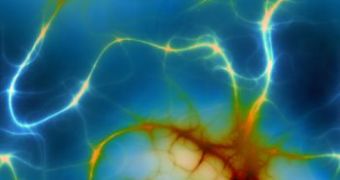Patients with spinal muscular atrophy (SMA) should also have their heart monitored along with skeletal muscles, as new study carried out by Nationwide Children's Hospital and published online in Human Molecular Genetics, reports cardiac dysfunctions in mice model.
Scientists considered SMA to be a debilitating neurological disease that only affected skeletal muscles throughout the body, but recent study shows that it might also affect the patient's heart.
Co-author of the study Brian Kaspar, PhD, principal investigator in the Center for Gene Therapy at The Research Institute at Nationwide Children's Hospital, said that even if a few studies concerning the cardiovascular and the autonomic nervous system in SMA patients have been made, they never went as far as determining the frequency on these problems.
Kaspar and his team investigated whether a cardiac dysfunction was present in a mouse model of severe SMA, when they noticed reports of slowed heart rate and altered blood flow in some human patients.
The mouse model they used was developed by Arthur Burghes, PhD, professor of Molecular and Cellular Biochemistry at The Ohio State University College of Medicine, and it is usually used for drug and therapeutic-based screening.
The problem in SMA mice was that their heart presented serious changes in its structure, impaired left-ventricular function and significantly lower heart rates, as the underlying structure resembled the cellular one of a heart biopsy from type 3 SMA patient.
To improve the neuromuscular function of SMA mice, Kaspar and his team developed a gene therapy approach that was successful at delivering the missing SMN protein.
When the SMN levels were completely restored, heart rates came back to normal and the early development of dilated cardiomyopathy was prevented.
“Our gene delivery strategy has unique advantages in that it targets neurons within the central and peripheral nervous system as well as the cardiac tissues,” said Pam Lucchesi, PhD, director of the Center for Cardiovascular and Pulmonary Research at The Research Institute at Nationwide Children's Hospital, faculty member at The Ohio State University College of Medicine and co-author of the study.
Even if it is not yet very clear what mechanisms are fully responsible for the heart problems in SMA mice, the study suggests that all autonomic, neuronal and developmental components play an important part.
Scientists still have to determine whether cardiac difficulties appear only in mouse models or if similar problems are developed by SMA patients with different severities, but Kaspar stresses that clinicians should consider the potential heart issues in some SMA patients.
“Increasing reports of autonomic dysfunction together with our current findings warrant increased attention to the cardiac status of SMA patients, and potentially highlights the need to investigate cardiac interventions alongside neuromuscular treatments,” he said.

 14 DAY TRIAL //
14 DAY TRIAL //